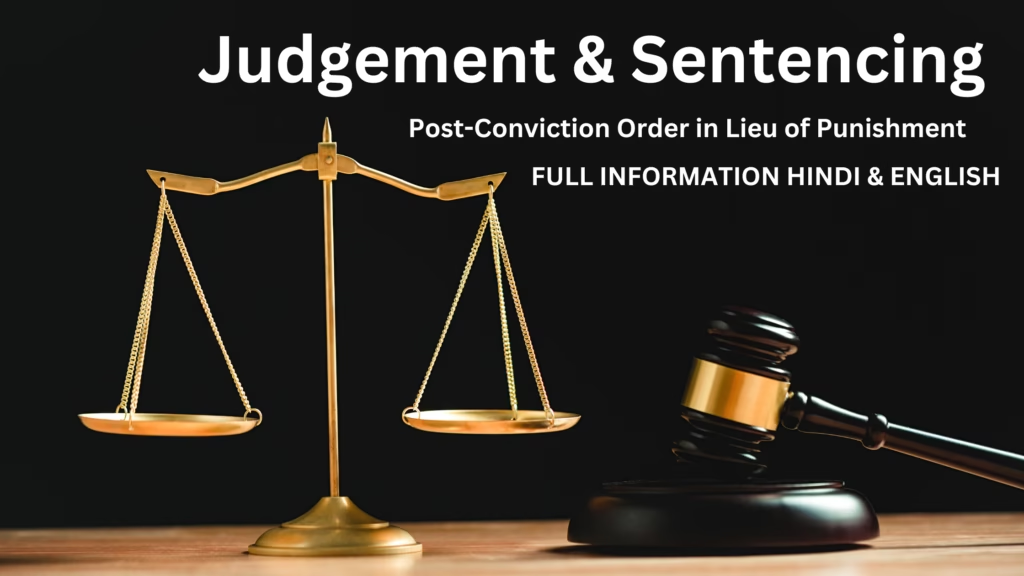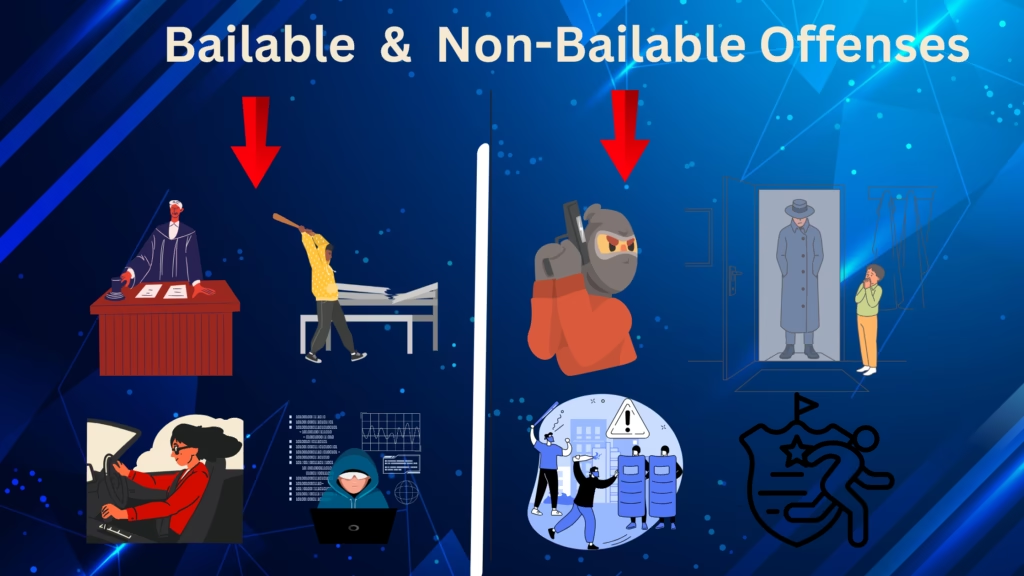1. Importance of Legal Profession (कानूनी पेशे का महत्व)
कानूनी पेशा एक आवश्यक स्तंभ है जो न्याय प्रणाली को सुचारू रूप से संचालित करने में मदद करता है। यह नागरिकों को उनके अधिकारों की सुरक्षा प्रदान करता है और कानून के शासन को बनाए रखता है। एक वकील न केवल न्यायालय में अपने मुवक्किल का प्रतिनिधित्व करता है, बल्कि समाज में कानून की समझ विकसित करने में भी महत्वपूर्ण भूमिका निभाता है।
The legal profession is an essential pillar that ensures the smooth functioning of the justice system. It provides individuals with legal protection and upholds the rule of law. A lawyer not only represents clients in court but also plays a crucial role in spreading legal awareness in society.

2. Persons Who May Be Admitted as Advocates on a State Roll (राज्य रोल पर वकील के रूप में प्रवेश के पात्र व्यक्ति)
निम्नलिखित व्यक्तियों को अधिवक्ता अधिनियम, 1961 के तहत किसी राज्य बार काउंसिल में नामांकन के लिए पात्र माना जाता है:
- भारतीय नागरिकता: केवल भारतीय नागरिक ही राज्य बार काउंसिल में अधिवक्ता के रूप में नामांकित हो सकते हैं।
- मान्यता प्राप्त विधि डिग्री: भारत में किसी मान्यता प्राप्त विश्वविद्यालय से कानून में स्नातक (LL.B.) की डिग्री होनी चाहिए।
- बार काउंसिल ऑफ इंडिया (BCI) की परीक्षा: अगर किसी ने विदेशी विश्वविद्यालय से कानून की डिग्री प्राप्त की है, तो उसे बार काउंसिल ऑफ इंडिया की परीक्षा पास करनी होगी।
- बार काउंसिल के नियमों का पालन: नामांकन के लिए आवश्यक दस्तावेज़ और फीस जमा करनी होती है।
Under the Advocates Act, 1961, the following individuals are eligible for enrollment in a State Bar Council:
- Indian Citizenship: Only Indian citizens can enroll as advocates in a State Bar Council.
- Recognized Law Degree: A graduate degree (LL.B.) from a recognized university in India is mandatory.
- Bar Council of India (BCI) Exam: If a candidate has obtained a law degree from a foreign university, they must pass the BCI exam.
- Compliance with Bar Council Rules: Required documents and fees must be submitted for enrollment.

3. Disqualification for Enrollment (नामांकन के लिए अयोग्यता)
निम्नलिखित परिस्थितियों में व्यक्ति को वकील के रूप में नामांकित होने से अयोग्य घोषित किया जा सकता है:
- अपराधी पृष्ठभूमि: यदि कोई व्यक्ति किसी गंभीर अपराध का दोषी पाया गया हो।
- अन्य कानूनी व्यवसाय: यदि व्यक्ति पहले से ही कोई अन्य पेशा या व्यवसाय कर रहा हो और बार काउंसिल द्वारा इसकी अनुमति न हो।
- अवयस्कता: यदि आवेदक की उम्र 21 वर्ष से कम हो।
- अनुचित आचरण: यदि व्यक्ति को अनैतिक आचरण या पेशेवर कदाचार का दोषी पाया गया हो।
A person may be disqualified from enrolling as an advocate under the following conditions:
- Criminal Background: If the individual has been convicted of a serious offense.
- Other Legal Professions: If the individual is already engaged in another profession without permission from the Bar Council.
- Underage: If the applicant is below 21 years of age.
- Misconduct: If found guilty of unethical or unprofessional conduct.

4. Rights of Advocates (वकीलों के अधिकार)
एक वकील के निम्नलिखित अधिकार होते हैं:
- न्यायालय में उपस्थित होने का अधिकार: वकील को भारत के किसी भी न्यायालय में मुवक्किल की ओर से पेश होने का अधिकार है।
- गोपनीयता का अधिकार: वकील और मुवक्किल के बीच की बातचीत गोपनीय रहती है।
- आजीविका का अधिकार: वकीलों को अपने पेशे से आय अर्जित करने का पूरा अधिकार है।
- वकालतनामा का अधिकार: मुवक्किल की ओर से कार्य करने के लिए वकील को लिखित रूप से अधिकृत किया जा सकता है।
The rights of an advocate include:
- Right to Appear in Court: Advocates have the right to represent clients in any court of law in India.
- Right to Confidentiality: Communication between an advocate and their client remains confidential.
- Right to Earn a Livelihood: Advocates have the right to earn from their legal practice.
- Right to Power of Attorney: An advocate can be legally authorized to act on behalf of a client.
5. State Bar Councils (राज्य बार काउंसिल)
(i) Establishment and Organization (स्थापना और संगठन)
राज्य बार काउंसिल की स्थापना अधिवक्ता अधिनियम, 1961 के तहत की गई है। प्रत्येक राज्य में एक स्वतंत्र बार काउंसिल होती है, जो उस राज्य के अधिवक्ताओं के नामांकन और अनुशासन का कार्य करती है।
The State Bar Councils are established under the Advocates Act, 1961. Each state has an independent Bar Council responsible for the enrollment and discipline of advocates.

(ii) Powers and Functions (शक्तियाँ और कार्य)
राज्य बार काउंसिल के निम्नलिखित कार्य और शक्तियाँ होती हैं:
- अधिवक्ताओं का नामांकन: योग्य वकीलों का नामांकन करना।
- अनुशासनात्मक कार्रवाई: यदि कोई वकील अनैतिक आचरण करता है, तो उसके खिलाफ कार्रवाई करना।
- विधि शिक्षा को बढ़ावा देना: कानून की शिक्षा की गुणवत्ता सुधारने के लिए कदम उठाना।
- सरकार को परामर्श देना: कानूनी सुधारों पर सरकार को सुझाव देना।
The powers and functions of the State Bar Councils include:
- Enrollment of Advocates: Registering eligible advocates.
- Disciplinary Action: Taking action against advocates involved in misconduct.
- Promoting Legal Education: Improving the standard of legal education.
- Advising the Government: Suggesting legal reforms to the government.

यह जानकारी अधिवक्ता अधिनियम, 1961 और बार काउंसिल ऑफ इंडिया के नियमों पर आधारित है। यदि आपको और अधिक विस्तृत जानकारी चाहिए, तो संबंधित राज्य बार काउंसिल की आधिकारिक वेबसाइट पर जा सकते हैं।
This information is based on the Advocates Act, 1961, and the Bar Council of India rules. For more details, visit the official website of the respective State Bar Council.
Advocates Act, 1961 (अधिवक्ता अधिनियम, 1961)
The Advocates Act, 1961 is an important law that regulates the legal profession in India. It provides provisions for the enrollment, practice, and discipline of advocates. This Act also led to the establishment of the Bar Council of India (BCI) and State Bar Councils.
अधिवक्ता अधिनियम, 1961 भारत में कानूनी पेशे को नियंत्रित करने वाला एक महत्वपूर्ण कानून है। यह अधिनियम अधिवक्ताओं के नामांकन, अभ्यास और अनुशासन से संबंधित प्रावधान करता है। इसी अधिनियम के तहत भारतीय बार काउंसिल (BCI) और राज्य बार काउंसिलों की स्थापना की गई थी।
मुख्य उद्देश्य (Main Objectives of the Act)
- अधिवक्ताओं के नामांकन और उनके अधिकारों को विनियमित करना।
To regulate the enrollment and rights of advocates. - बार काउंसिल ऑफ इंडिया (BCI) और राज्य बार काउंसिलों की स्थापना करना।
To establish the Bar Council of India (BCI) and State Bar Councils. - अधिवक्ताओं के आचरण और अनुशासन को सुनिश्चित करना।
To ensure the conduct and discipline of advocates. - भारत में एकीकृत कानूनी पेशे की स्थापना करना।
To establish a unified legal profession in India.
मुख्य प्रावधान (Key Provisions of the Act)
1. अधिवक्ताओं का वर्गीकरण (Classification of Advocates) – Section 16
Advocates are classified into two categories:
- Senior Advocates (वरिष्ठ अधिवक्ता) – सुप्रीम कोर्ट या हाईकोर्ट द्वारा मान्यता प्राप्त अनुभवी अधिवक्ता।
- Other Advocates (अन्य अधिवक्ता) – सामान्य रूप से अभ्यास करने वाले अधिवक्ता।
अधिवक्ताओं को दो वर्गों में विभाजित किया गया है:
- वरिष्ठ अधिवक्ता (Senior Advocates) – सुप्रीम कोर्ट या हाईकोर्ट द्वारा मान्यता प्राप्त अनुभवी अधिवक्ता।
- अन्य अधिवक्ता (Other Advocates) – सामान्य रूप से अभ्यास करने वाले अधिवक्ता।
2. अधिवक्ताओं का नामांकन (Enrollment of Advocates) – Sections 24 & 25
(i) पात्रता (Eligibility for Enrollment)
कोई भी व्यक्ति जो निम्नलिखित शर्तें पूरी करता है, वह अधिवक्ता के रूप में नामांकन के लिए पात्र है:
- भारतीय नागरिक होना चाहिए। (Must be an Indian citizen.)
- मान्यता प्राप्त विश्वविद्यालय से LL.B. की डिग्री होनी चाहिए। (Must have an LL.B. degree from a recognized university.)
- बार काउंसिल ऑफ इंडिया की परीक्षा उत्तीर्ण करनी चाहिए (यदि आवश्यक हो)। (Must pass the Bar Council of India exam, if required.)
(ii) नामांकन प्रक्रिया (Enrollment Process)
- अधिवक्ता को अपने राज्य बार काउंसिल में आवेदन करना होगा।
- आवश्यक दस्तावेज़ और शुल्क जमा करने होंगे।
- जांच के बाद, अधिवक्ता का नामांकन किया जाता है।
3. अधिवक्ताओं के अधिकार (Rights of Advocates) – Section 30
- भारत के किसी भी न्यायालय में अभ्यास करने का अधिकार। (Right to practice in any court in India.)
- मुवक्किल से उचित शुल्क लेने का अधिकार। (Right to charge reasonable fees from clients.)
- विधि पेशे के सम्मान को बनाए रखने का अधिकार। (Right to uphold the dignity of the legal profession.)
4. अधिवक्ताओं के कर्तव्य (Duties of Advocates) – Section 49
- मुवक्किल के प्रति ईमानदारी और निष्ठा रखना। (To be honest and loyal to the client.)
- न्यायालय और न्यायाधीशों का सम्मान करना। (To respect the court and judges.)
- गोपनीयता बनाए रखना और हितों के टकराव से बचना। (To maintain confidentiality and avoid conflicts of interest.)
- अनैतिक या अवैध गतिविधियों में शामिल न होना। (Not to engage in unethical or illegal activities.)
5. बार काउंसिल ऑफ इंडिया (Bar Council of India – BCI) – Section 4
(i) स्थापना और संगठन (Establishment & Organization)
- BCI भारत के सभी अधिवक्ताओं का सर्वोच्च नियामक निकाय है।
- इसमें निर्वाचित सदस्य होते हैं, जो राज्य बार काउंसिलों के प्रतिनिधि होते हैं।
(ii) शक्तियाँ और कार्य (Powers & Functions of BCI)
- कानूनी शिक्षा को विनियमित करना। (To regulate legal education.)
- अधिवक्ताओं के आचरण और अनुशासन को सुनिश्चित करना। (To ensure the conduct and discipline of advocates.)
- बार काउंसिल ऑफ इंडिया की परीक्षा आयोजित करना। (To conduct the Bar Council of India exam.)
- अधिवक्ताओं के अधिकारों और हितों की रक्षा करना। (To protect the rights and interests of advocates.)
6. राज्य बार काउंसिल (State Bar Councils) – Section 6
(i) स्थापना और संगठन (Establishment & Organization)
- प्रत्येक राज्य में एक राज्य बार काउंसिल होती है, जो उस राज्य के अधिवक्ताओं का पंजीकरण और अनुशासन देखती है।
(ii) शक्तियाँ और कार्य (Powers & Functions of State Bar Councils)
- अधिवक्ताओं का नामांकन करना। (To enroll advocates.)
- अनुशासनात्मक कार्रवाई करना। (To take disciplinary action.)
- कानूनी शिक्षा और प्रशिक्षण को बढ़ावा देना। (To promote legal education and training.)
7. अनुशासनात्मक कार्रवाई (Disciplinary Actions) – Section 35
यदि कोई अधिवक्ता पेशेवर कदाचार (Professional Misconduct) करता है, तो बार काउंसिल निम्नलिखित कार्रवाई कर सकती है:
- नोटिस जारी करना। (Issuing a notice.)
- नामांकन निलंबित करना। (Suspending enrollment.)
- नामांकन रद्द करना। (Canceling enrollment.)
निष्कर्ष (Conclusion)
Advocates Act, 1961 भारतीय कानूनी पेशे के लिए एक महत्वपूर्ण कानून है, जो अधिवक्ताओं के नामांकन, अभ्यास, अधिकारों और दायित्वों को नियंत्रित करता है। इस अधिनियम ने कानूनी पेशे को अधिक संगठित और अनुशासित बनाया है।
अधिवक्ता अधिनियम, 1961 भारत में कानूनी पेशे को नियंत्रित करने के लिए बनाया गया एक प्रमुख अधिनियम है। यह अधिनियम न केवल अधिवक्ताओं के अधिकार और कर्तव्यों को परिभाषित करता है, बल्कि अनुशासन और नैतिकता को बनाए रखने में भी महत्वपूर्ण भूमिका निभाता है।

